Filter by
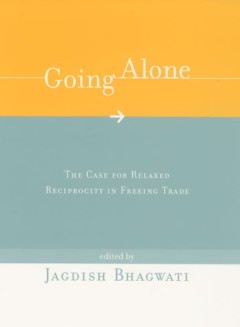
Going alone :the case for relaxed reciprocity in freeing trade
An analytic and empirical study of unilateral trade liberalization agreements, from the nineteenth century to the present.Since the end of World War II, the freeing of trade has been most visible in reciprocal liberalization agreements negotiated under the General Agreement on Tariffs and Trade, or GATT, and through increasing bilateral and plurilateral agreements. There has also, however, been…
- Edition
- -
- ISBN/ISSN
- 9780262268455
- Collation
- 1 online resource (xii, 586 pages) : illustrations
- Series Title
- -
- Call Number
- -
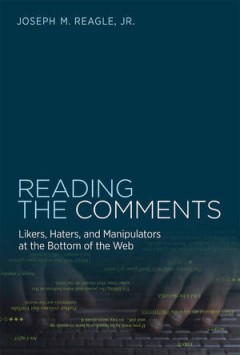
Reading the Comments: Likers, Haters, and Manipulators at the Bottom of the Web
Online comment can be informative or misleading, entertaining or maddening. Haters and manipulators often seem to monopolize the conversation. Some comments are off-topic, or even topic-less. In this book, Joseph Reagle urges us to read the comments. Conversations "on the bottom half of the Internet," he argues, can tell us much about human nature and social behavior. Reagle visits communiti…
- Edition
- -
- ISBN/ISSN
- 9780262328876
- Collation
- -
- Series Title
- -
- Call Number
- -
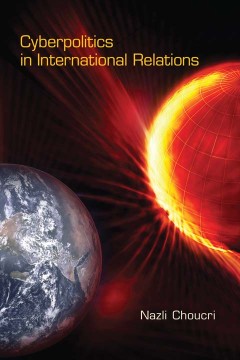
Cyberpolitics in international relations /
An examination of the ways cyberspace is changing both the theory and the practice of international relations.
- Edition
- -
- ISBN/ISSN
- -
- Collation
- 1 online resource (viii, 311 pages) : illustrations
- Series Title
- -
- Call Number
- -
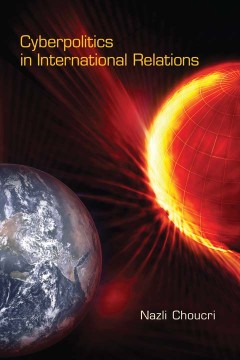
Cyberpolitics in international relations /
An examination of the ways cyberspace is changing both the theory and the practice of international relations.
- Edition
- -
- ISBN/ISSN
- -
- Collation
- 1 online resource (viii, 311 pages) : illustrations
- Series Title
- -
- Call Number
- -

The ends game :how smart companies stop selling products and start delivering…
"An innovative rethinking of our current market system where people pay for products. In the future, we will pay for the results a company can deliver. This book explains how we will reach that future"--OCLC-licensed vendor bibliographic record.
- Edition
- -
- ISBN/ISSN
- 9780262360074
- Collation
- 1 online resource.
- Series Title
- -
- Call Number
- -
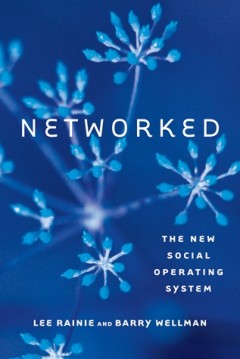
Networked: The new social operating system
Daily life is connected life, its rhythms driven by endless email pings and responses, the chimes and beeps of continually arriving text messages, tweets and retweets, Facebook updates, pictures and videos to post and discuss. Our perpetual connectedness gives us endless opportunities to be part of the give-and-take of networking. Some worry that this new environment makes us isolated and lo…
- Edition
- -
- ISBN/ISSN
- 9780262301190
- Collation
- 1 online resource (xiii, 358 pages) :illustrations
- Series Title
- -
- Call Number
- -
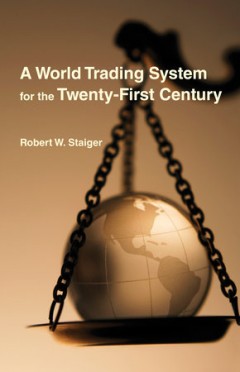
A world trading system for the twenty-first century
"A book in the Ohlin Lectures series on trade agreements"--OCLC-licensed vendor bibliographic record.
- Edition
- -
- ISBN/ISSN
- 9780262371308
- Collation
- 1 online resource.
- Series Title
- -
- Call Number
- -
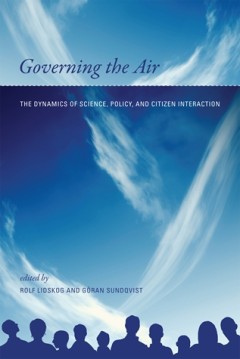
Governing the air: Tthe dynamics of science, policy, and citizen interaction
Governing the Air looks at the regulation of air pollution not as a static procedure of enactment and agreement but as a dynamic process that reflects the shifting interrelationships of science, policy, and citizens. Taking transboundary air pollution in Europe as its empirical focus, the book not only assesses the particular regulation strategies that have evolved to govern European air, but a…
- Edition
- -
- ISBN/ISSN
- 9780262298278
- Collation
- 1 online resource (xiv, 368 pages).
- Series Title
- -
- Call Number
- -
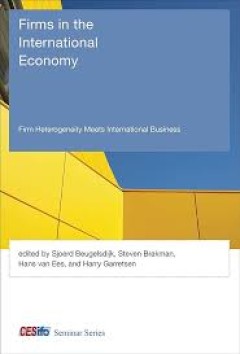
Firms in the International Economy :Firm Heterogeneity Meets International Bu…
International Economics (IE) and International Business (IB) are usually treated as two separate disciplines. With the advent of new trade theory the firm was reintroduced in IE and the fields more and more discuss the same topics. This book shows that IE as well as IB could benefit from each other.OCLC-licensed vendor bibliographic record.
- Edition
- -
- ISBN/ISSN
- 1306203643
- Collation
- 1 online resource.
- Series Title
- -
- Call Number
- -
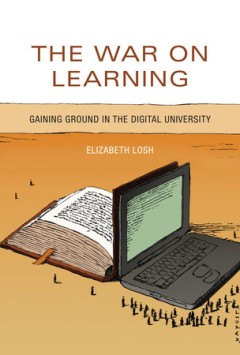
The war on learning : gaining ground in the digital university
Behind the lectern stands the professor, deploying course management systems, online quizzes, wireless clickers, PowerPoint slides, podcasts, and plagiarism-detection software. In the seats are the students, armed with smartphones, laptops, tablets, music players, and social networking. Although these two forces seem poised to do battle with each other, they are really both taking part in a war…
- Edition
- -
- ISBN/ISSN
- 9780262323253
- Collation
- 1 online resource (xi, 302 pages) :illustrations
- Series Title
- -
- Call Number
- -
 Computer Science, Information & General Works
Computer Science, Information & General Works  Philosophy & Psychology
Philosophy & Psychology  Religion
Religion  Social Sciences
Social Sciences  Language
Language  Pure Science
Pure Science  Applied Sciences
Applied Sciences  Art & Recreation
Art & Recreation  Literature
Literature  History & Geography
History & Geography